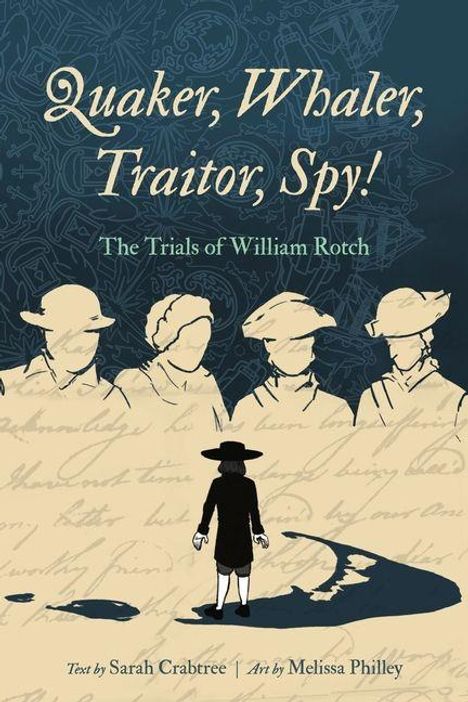Sarah Crabtree: Quaker, Whaler, Traitor, Spy!, Gebunden
Quaker, Whaler, Traitor, Spy!
- The Trials of William Rotch
Sie können den Titel schon jetzt bestellen. Versand an Sie erfolgt gleich nach Verfügbarkeit.
- Illustration:
- Melissa Philley
- Verlag:
- Pennsylvania State University Press, 03/2026
- Einband:
- Gebunden
- Sprache:
- Englisch
- ISBN-13:
- 9780271101514
- Artikelnummer:
- 12447694
- Umfang:
- 120 Seiten
- Gewicht:
- 144 g
- Maße:
- 229 x 152 mm
- Stärke:
- 15 mm
- Erscheinungstermin:
- 31.3.2026
- Hinweis
-
Achtung: Artikel ist nicht in deutscher Sprache!
Weitere Ausgaben von Quaker, Whaler, Traitor, Spy! |
Preis |
|---|---|
| Buch, Kartoniert / Broschiert, Englisch | EUR 29,90* |
Klappentext
Accused of treason four times by three governments, William Rotch led a harrowing life. A Quaker merchant in the Age of Revolution, he refused to fight for either independence or empire. To governments and neighbors, his pacifism looked like treachery. As he fled from Nantucket to France to Britain and back again, Rotch suffered looting, inquisitions, and the threat of imprisonment and execution for his principled refusal to fight.
Yet Rotch was also a beneficiary of these turbulent years. Drawing on fresh archival research, Sarah Crabtree reveals how Rotch turned revolutionary upheaval to his advantage. He used his whaling ships to dodge national borders, claim multiple residences, and play rival governments against one another, building a vast fortune even as he faced trials for his supposed disloyalties. Beginning with the Boston Tea Party--when his family's ships carried the infamous cargo--Rotch's story illuminates the contested ideals of freedom, capitalism, and conscience in the Revolutionary Atlantic world.
*Quaker, Whaler, Traitor, Spy!*uses the comic form to tell this remarkable story from all angles, showing how different sources paint Rotch's character in different lights. Through striking visuals and careful storytelling, this graphic history invites readers to question how history gets made and how we ought to reconcile seemingly contradictory accounts. Both engaging narrative and scholarly case study, this book is not only ideal for methods courses and classes in US history but also an accessible and compelling read for general audiences.


